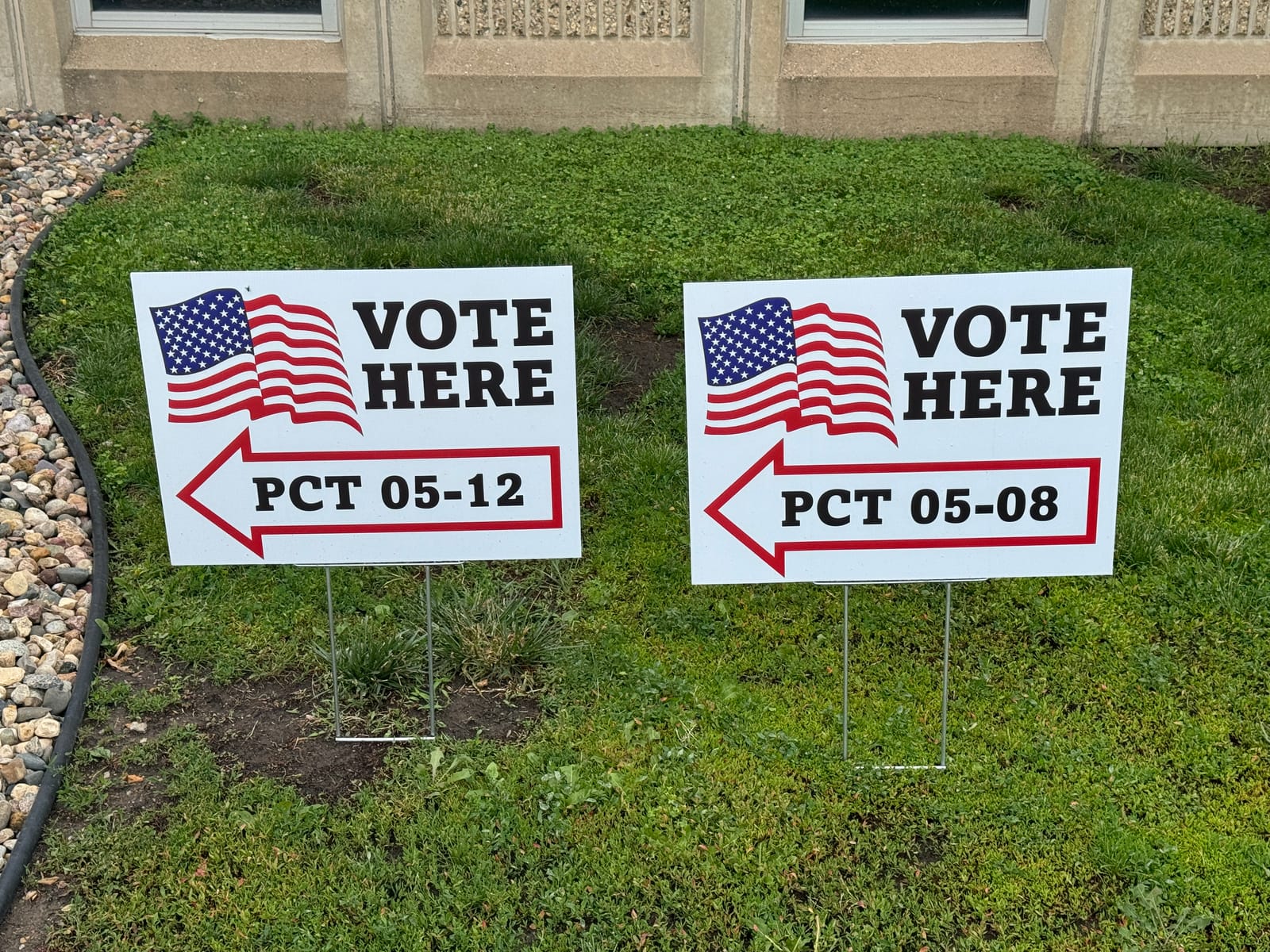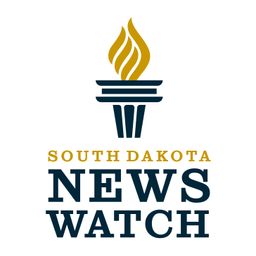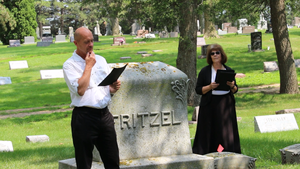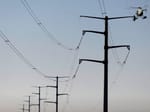The runup to a major election can be a hectic time for election officials, whose tasks include training poll workers, testing tabulators, processing absentee ballots and providing voter information.
This year, in the final days before South Dakotans head to the polls Nov. 5, the stress level is higher than usual.
“Things are more contentious,” said Pennington County Auditor Cindy Mohler, who supervises elections in the state’s second-largest county in Rapid City. “I feel like at every turn we don't know what's going to be thrown at us, and so you're a little apprehensive to let your guard down.”
Recent trends in South Dakota election law have broadened access for poll watchers and observers – who are allowed to monitor voting and counting activity – without increasing protections for poll workers and election officials, raising concerns about potential harassment, intimidation or interference.
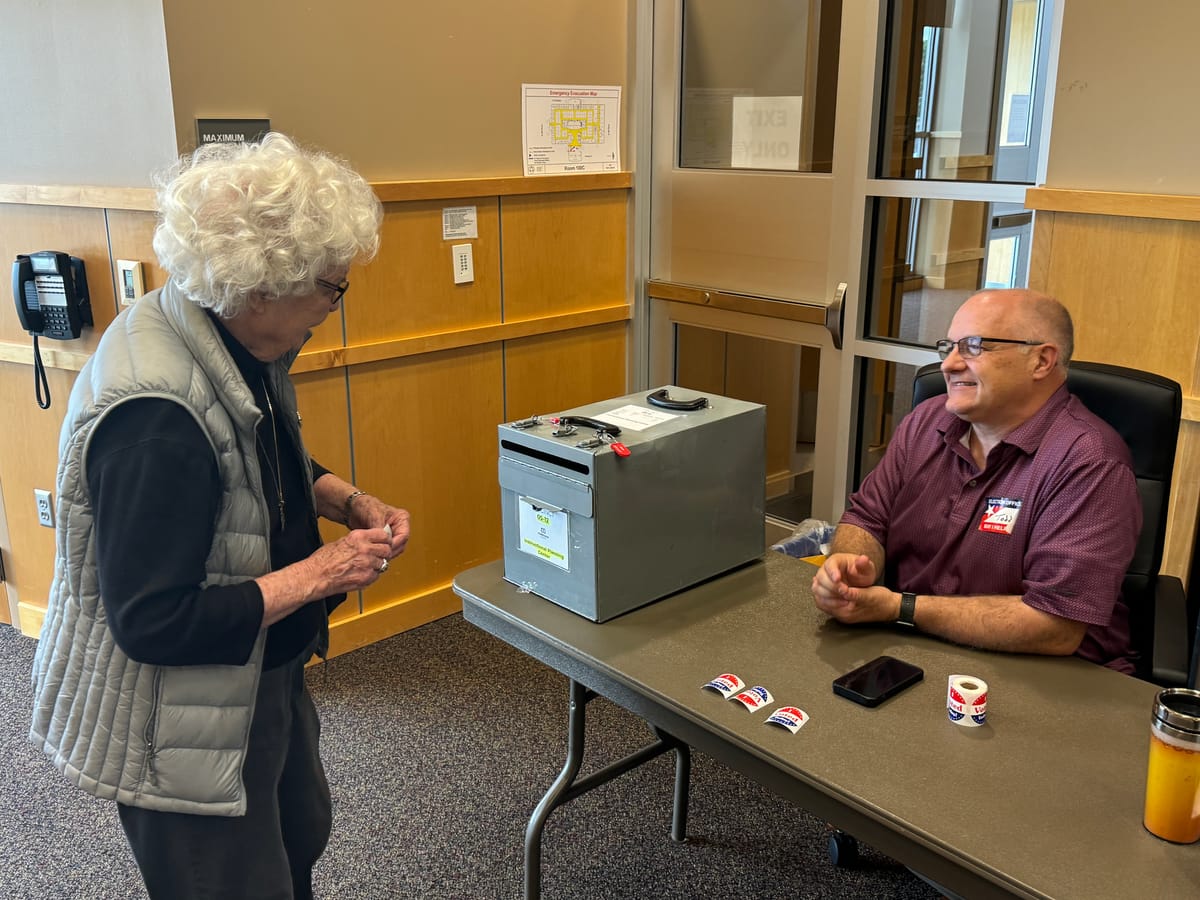
Nationally, the U.S. Department of Justice’s Election Threats Task Force has arrested and prosecuted about 20 individuals for threatening election workers since its inception in 2021, a small fraction of cases reported by local officials.
There are several reasons for election angst in South Dakota, starting with the political climate. The state has seen a rise in electoral activism sparked by unfounded claims of voting irregularities in the last presidential election, predominantly from populist Republicans lamenting Donald Trump's 2020 defeat.
Seeds of doubt from Trump and his followers spawned activist organizations such as South Dakota Canvassing Group, whose founders were inspired by My Pillow founder and conspiracy theorist Mike Lindell’s 2021 Cyber Symposium in Sioux Falls.
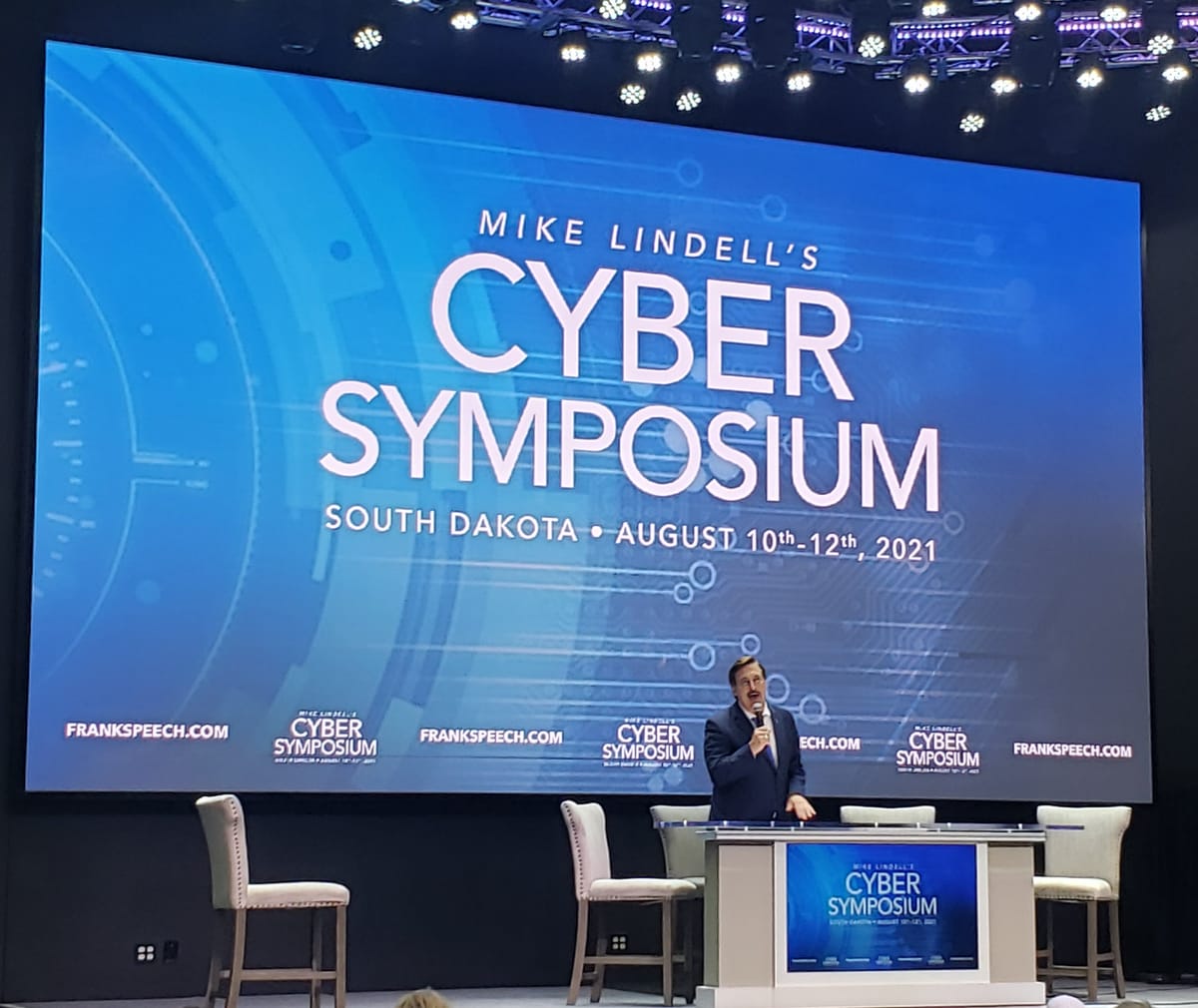
The grassroots appeal of these efforts had enough sway in South Dakota to motivate state legislators to pass election security measures such as mandatory post-election audits and the banning of unmonitored drop boxes.
"There's a lot to celebrate in South Dakota," said Rick Weible, a computer analyst and Canvassing Group adviser who is among the state's most influential electoral activists. "Transparency is the inoculation to all conspiracy theories, and having more public and bipartisan oversight of elections is always a good thing."
Poll shows confidence in South Dakota elections
Though national rhetoric about election integrity has impacted South Dakota politically, it has not eroded confidence in the accuracy of local elections, according to a poll of 500 registered voters co-sponsored by News Watch.
The statewide survey, also sponsored by the Chiesman Center for Democracy at the University of South Dakota, was conducted Oct. 12-16 by Mason-Dixon Polling and Strategy.
It showed that 71% of respondents were “very confident” that votes will be counted accurately in the 2024 election in South Dakota, while 23% said they were “somewhat confident,” for a total of 94%.
Weible, who testifies frequently in Pierre and has guest-hosted Lindell's podcast, called the results encouraging but stressed the need for more testing and transparency of vote tabulation systems in the public realm.
"We should be looking for continuous improvement, and we need county auditors and state election officials to be open to that," he said.
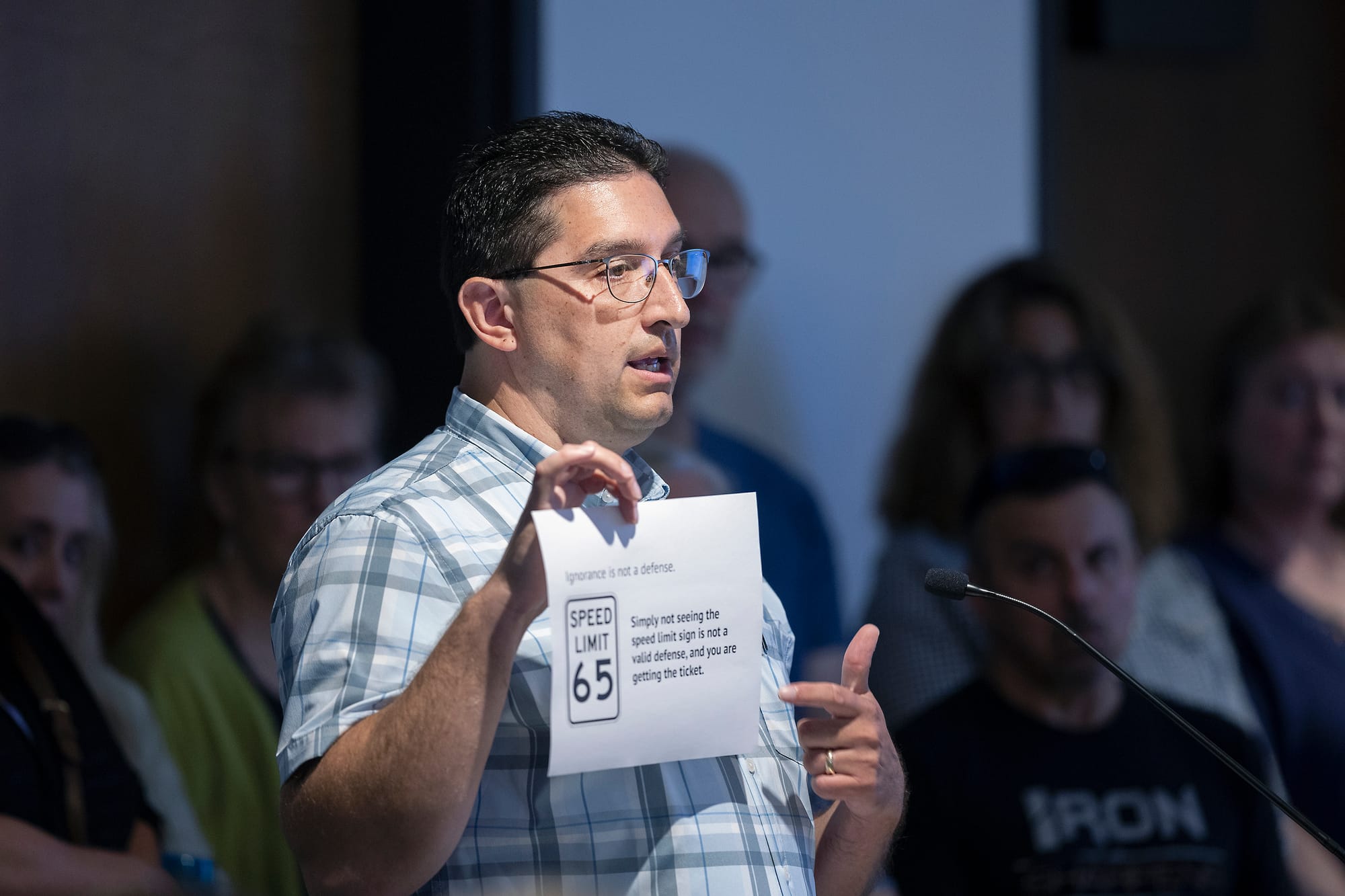
When the same group of registered voters was polled about the 2024 presidential election, just 41% said they were very confident that the results would be accurate, while 25% said they were somewhat confident, for a total of 66%.
Broken down by party registration, just 21% of Republicans said they were “very confident” that the race between Trump and Democratic Vice President Kamala Harris will be counted accurately, compared to 75% of Democrats.
Jen Easterly, director of the Cybersecurity and Infrastructure Security Agency (CISA), a division of U.S. Department of Homeland Security that oversees election security, told News Watch that the poll results did not surprise her.
“There is an unfortunate issue around confidence in national elections because of the fire hose of disinformation that Americans have been subjected to over the last four years,” said Easterly, an Army veteran who also served in the National Security Agency. “This disinformation has been amplified by foreign adversaries. When they see that Americans lack confidence in the integrity of our most important democratic institution, our elections, that’s exactly what they want.”
'Human error' causes voter roll issues
The reputability of South Dakota voter rolls has been undermined at times by instances of miscommunication and human error involving the South Dakota Secretary of State's office and the Department of Public Safety in Pierre.
In January, DPS confirmed to News Watch that more than 10,000 registrations weren't properly transferred to voter rolls due to a computer coding error dating back to 2022. Voters affected received a letter informing them that the problem was fixed and their ability to cast a ballot in an election "was not impacted by this error.”
More recently, the Secretary of State's office announced the removal of 273 noncitizens from voter rolls on Oct. 7, the result of "human error by DPS employees where the citizenship status was incorrectly marked," according to Division of Elections Director Rachel Soulek.
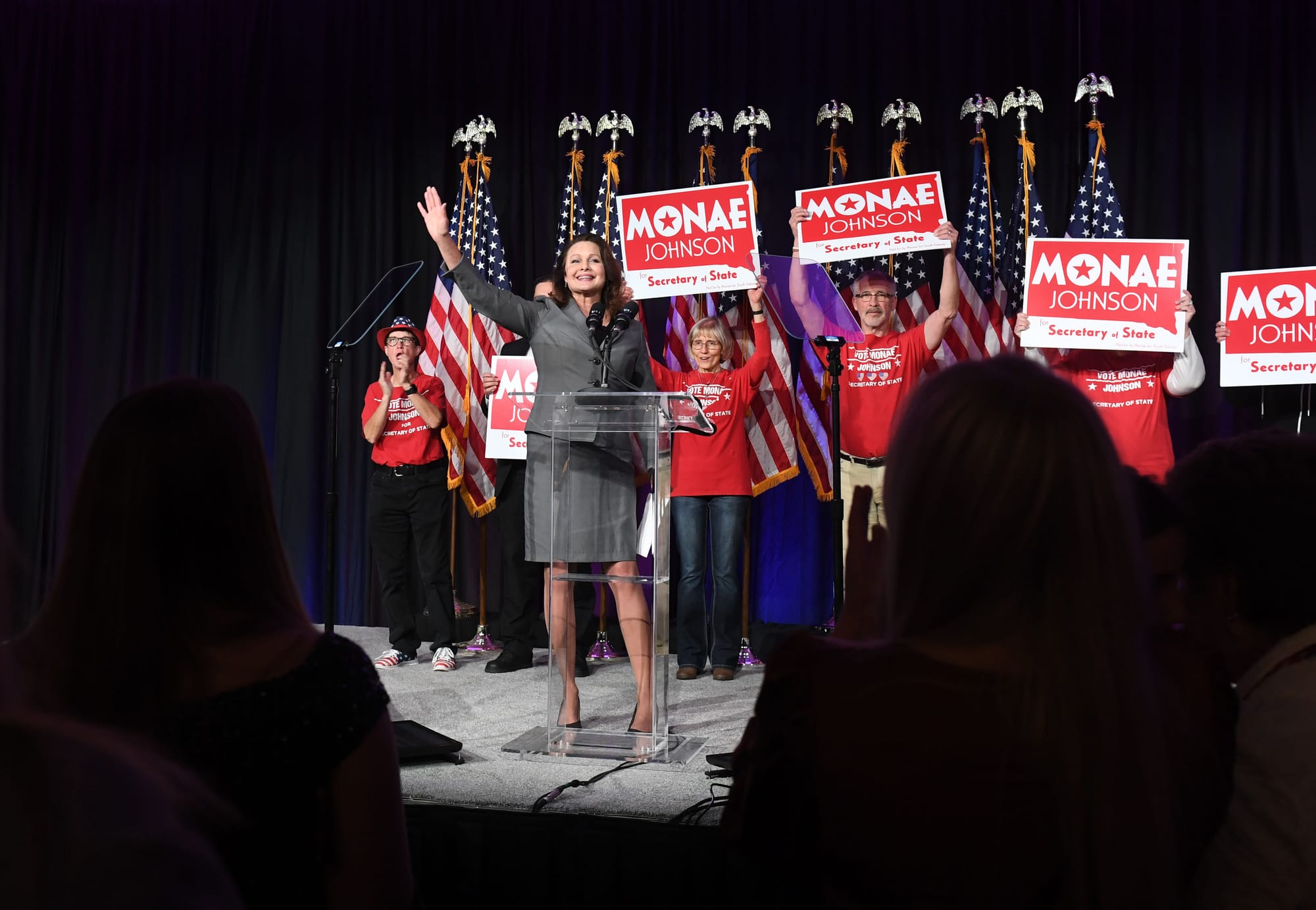
The American Civil Liberties Union of South Dakota accused the state of violating the National Voting Rights Act, which prohibits mass voter roll purges within 90 days of an election, known as the "quiet period."
A similar controversy occurred in Virginia, where 1,600 noncitizens were removed from the voter rolls due to a systematic review ordered by the state’s Republican governor that fell within the 90-day period before the election.
A federal judge on Oct. 25 ordered that the voters be restored to the Virginia rolls, a decision that was reversed by the conservative majority on the U.S. Supreme Court on Oct. 30, six days before the election.
Tom Deadrick, South Dakota's deputy secretary of state, said the state's purge of noncitizen voters was legal because it came as a result of the DPS being made aware of a noncitizen being inadvertently registered, which led to a review of voter registration records through driver licensing applications.
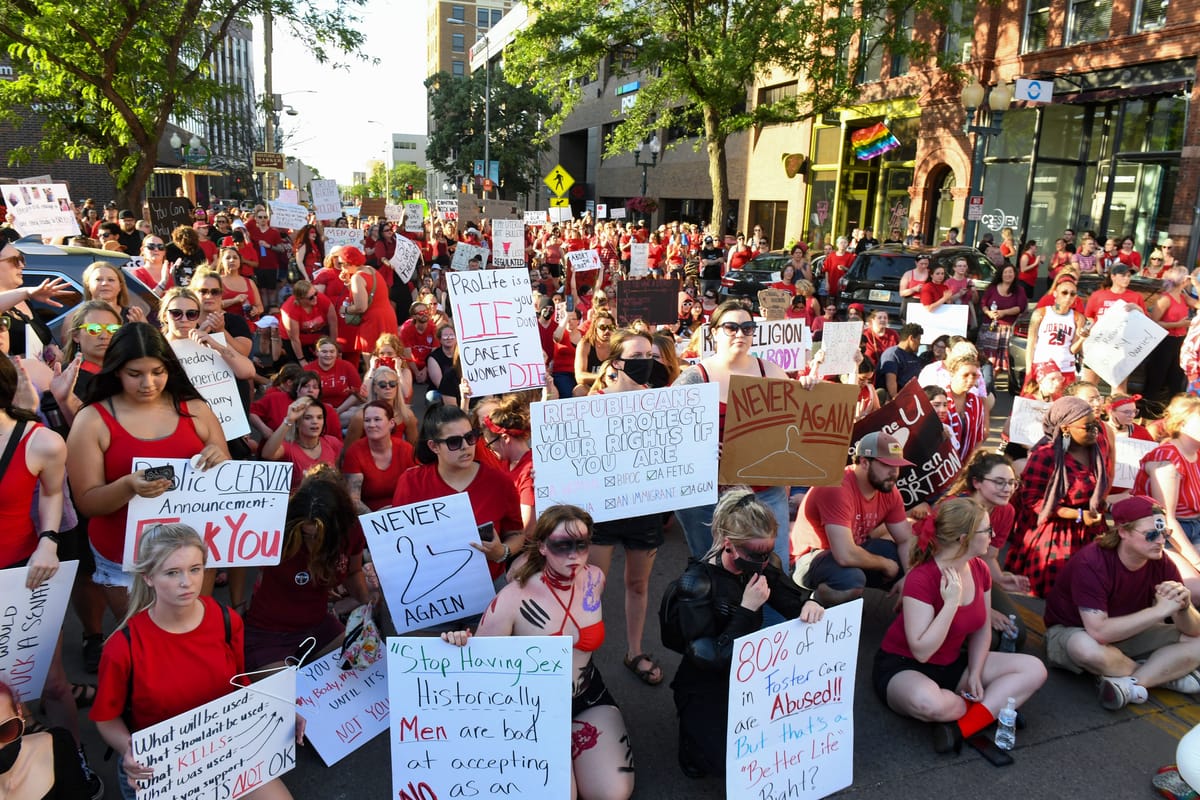
"Our careful approach underscores our commitment to maintaining the integrity of the voter rolls while ensuring that eligible citizens are not inadvertently removed," Deadrick wrote in a letter to the ACLU. "Each step taken in this process reflects our dedication to conducting individualized assessments rather than relying on systematic removals."
Contacted for this story by News Watch, Secretary of State Monae Johnson requested that questions be sent via email, which she received on Oct. 25 and said she would "get back to you as soon as I can." As of publication on Oct. 31, no responses had been received.
Minnehaha County auditor stirs controversy
Some of the most brazen challenges to the status quo of South Dakota election systems have come from the state’s largest county, Minnehaha.
Republican Leah Anderson, the county auditor elected in 2022, has spoken at South Dakota Canvassing events and embraced some of the group’s core initiatives while raising doubts about the accuracy of past election results.
Anderson directed that Minnehaha County conduct a full post-election audit of more than 13,000 ballots from the June 25 primary by hand count, despite state law only requiring 5% percent of precincts be audited.
The process took about 11 hours, more than double what Anderson had estimated. Most races were within a single vote difference between the tabulation count and hand recount.
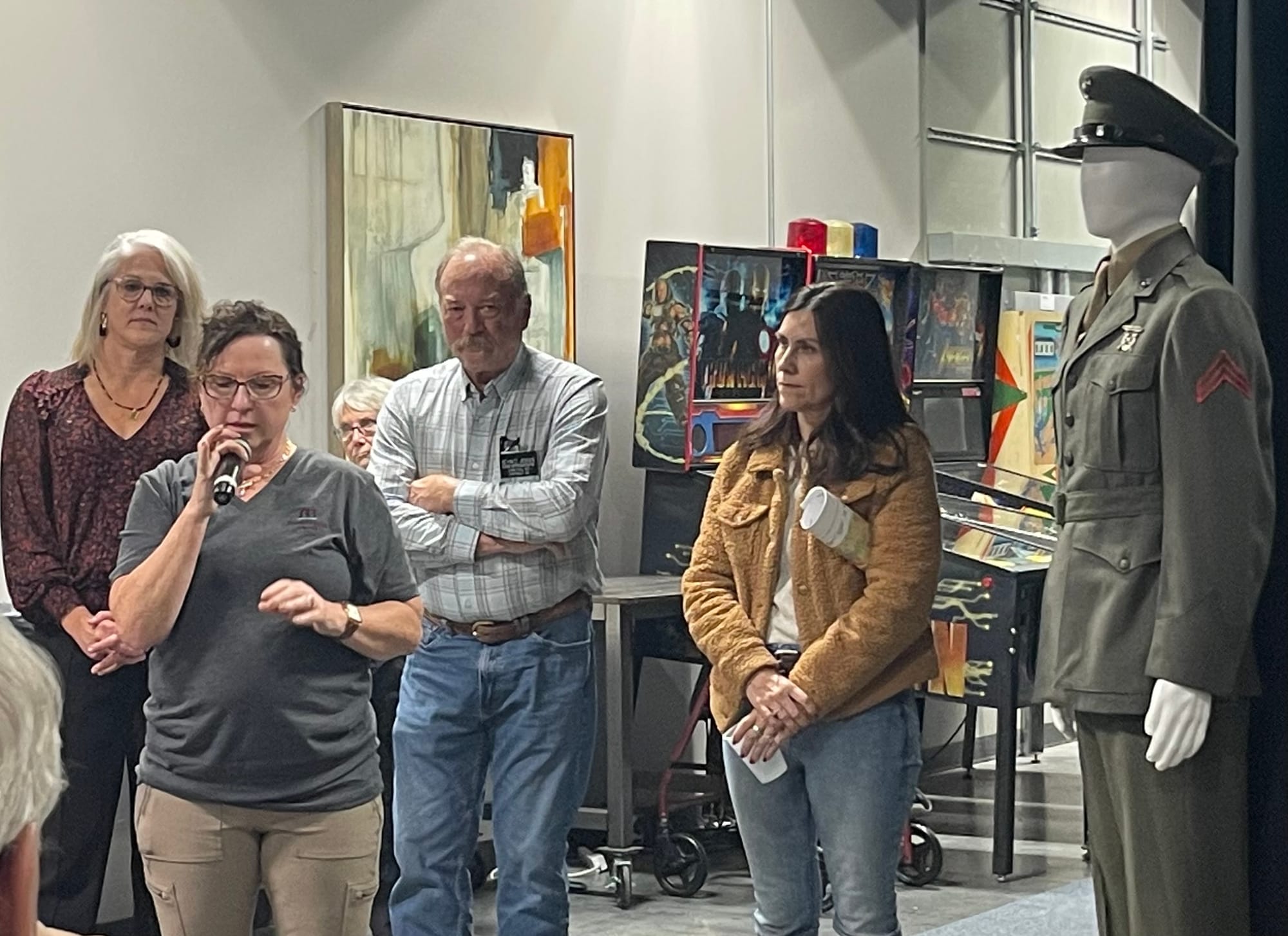
In the aftermath of that primary, Anderson appeared in a video with Canvassing Group president Jessica Pollema and third-place District 11 House finisher John Kunnari, in which Pollema said they had proof that 132 ballots had been cast fraudulently due to shared addresses from Sioux Falls post office boxes.
The South Dakota Supreme Court in August denied a request to invalidate the votes, siding with the Secretary of State's office and Minnehaha County State's Attorney Daniel Haggar that the challenge fell outside of the state law governing election disputes.

Anderson also said in a press release and on Lindell's podcast that roughly 24,500 ballots were potentially unaccounted for from the 2020 election in Minnehaha County. She later conceded that the number was closer to 283 and that she was "comfortable with the number of ballots cast" based on boxes of records she found.
At a June 10 public meeting, Minnehaha County Commissioner Joe Kippley, a Republican, cited the importance of the upcoming 2024 election and criticized Anderson for providing “useful idiocy for election conspiracy grifters" with her claims, which included open questions about CIA involvement.
“You are the auditor who cried wolf, so you have no credibility, and I, as one commissioner, would ask you to resign,” Kippley said at the meeting, to which Anderson responded that she had no intention of stepping down.
Debate over wearing political apparel to polls
For the Nov. 5 election, Anderson has amended Minnehaha County regulations to allow political campaign apparel to be worn to the polls, a position that runs counter to South Dakota Secretary of State election policy.
Supporters of the move point to a 2018 U.S. Supreme Court decision in which the court struck down a Minnesota law that prohibited voters from wearing politically themed apparel such as T-shirts, buttons or hats to the polls. The case stemmed from 2010, when a man was temporarily prevented from voting because he was wearing a T-shirt with a Tea Party logo and a "Please I.D. Me" button.
The court's 7-2 ruling stated that Minnesota's law violated the First Amendment because it was overly broad, recommending that the state put forth a “more discernible approach” to what is forbidden and what is not.
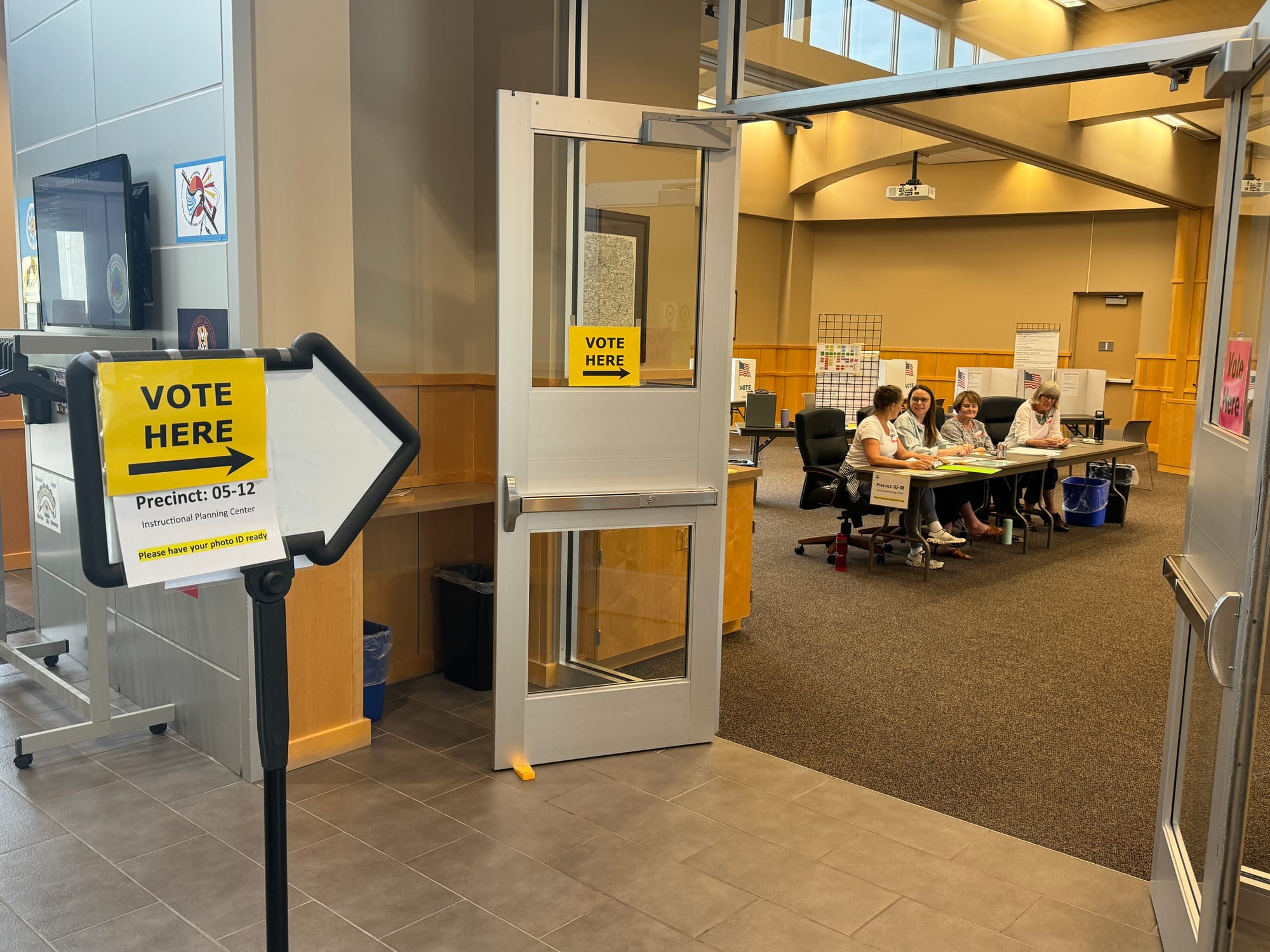
The Minnesota Secretary of State's policy, based on the new law, is more detailed in disallowing “campaign T-shirts, buttons or literature which relate to specific candidates, official political parties, or ballot questions on the ballot that day.”
Asked by News Watch if Minnehaha County’s policy will allow political apparel connected to 2024 candidates or ballot measures, Anderson deferred to Haggar, the state's attorney, who indicated that such items would be allowed under the revised rules.
"As long as individuals are not actively campaigning or actively attempting to solicit votes for or against a candidate or ballot measure, our priority is to protect every registered voter's right to vote," Haggar told News Watch via email. "Any person who is actively campaigning or disrupting the polling place will be asked to cease or to leave.”
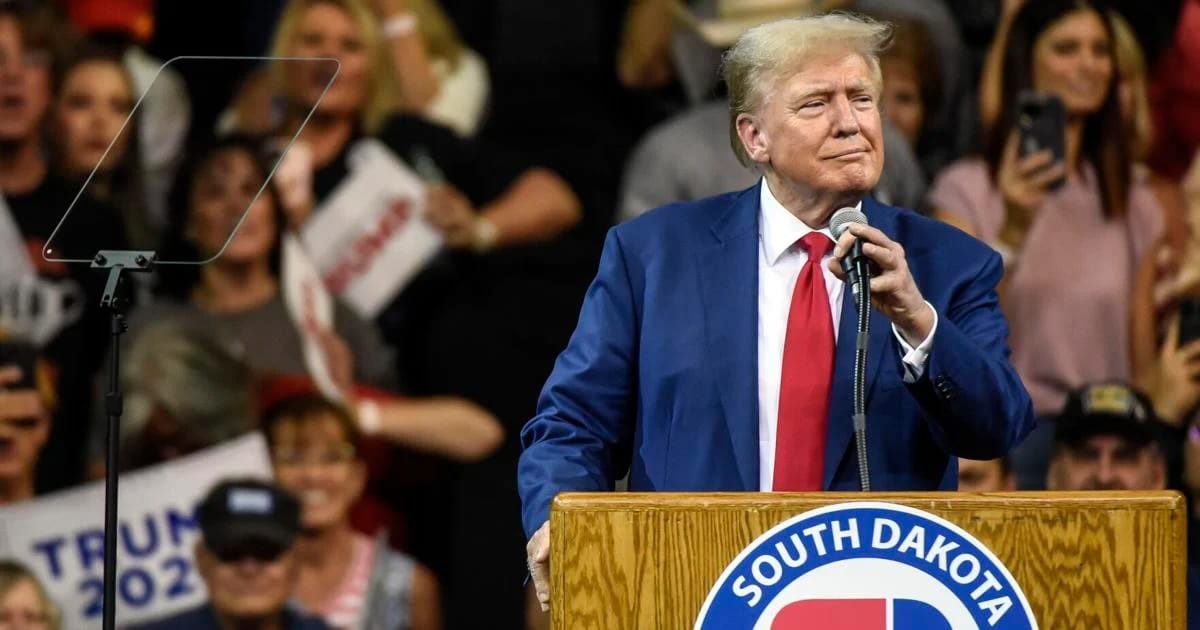
Minnehaha County's directive runs counter to state election officials' interpretation of South Dakota Codified Law 12-18-3, which prohibits a person from displaying "campaign posters, signs, or other campaign materials" at a polling place or within 100 feet of the entrance to the site.
In an email to county auditors addressing Minnehaha County's decision, Christine Lehrkamp, deputy elections director, said that “this office has advised for many, many years that there may be no campaign material within 100 feet of any entrance to a polling location and also no voter may wear campaign material into the polling location. The Secretary of State’s office will continue to follow state law and continue to advise you all to follow state law unless we have a court opinion specific to South Dakota that our law is unconstitutional.”
Asked by News Watch about the conflict, Kippley said that reasonable people could disagree on whether wearing political apparel to a polling site violates the law.
"Regardless, we should be doing what we can to lower the temperature of civil discourse while also respecting the First Amendment," he said. "I wouldn’t want people to think that non-enforcement of apparel restrictions gives complete license to actively campaign in a polling place or worse yet lead to physical confrontations while trying to vote. This is a topic that needs tactful messaging that (Anderson) is unlikely to be capable of."
SD law expands access for poll watchers
Several of South Dakota’s election-based legislative efforts have been in response to calls for more citizen oversight and observation of the vote counting process.
One of those measures was House Bill 1182, passed in 2024 to mandate that polling places be arranged "in such a manner that permits each poll watcher and observer to be positioned in a location where (they) may plainly see and hear what is done within the polling place."
State guidelines allow for at least one poll watcher for each political party or independent candidate and at least one for each slate of presidential electors and any ballot measure to be voted on.
In addition, the new law ensures access for citizen observers who do not fit any of the poll watcher categories, provided that they don't interfere with the duties of election officials.
Violations of the law, which could be transgressions by poll watchers/observers or election workers, are a Class 2 misdemeanor.
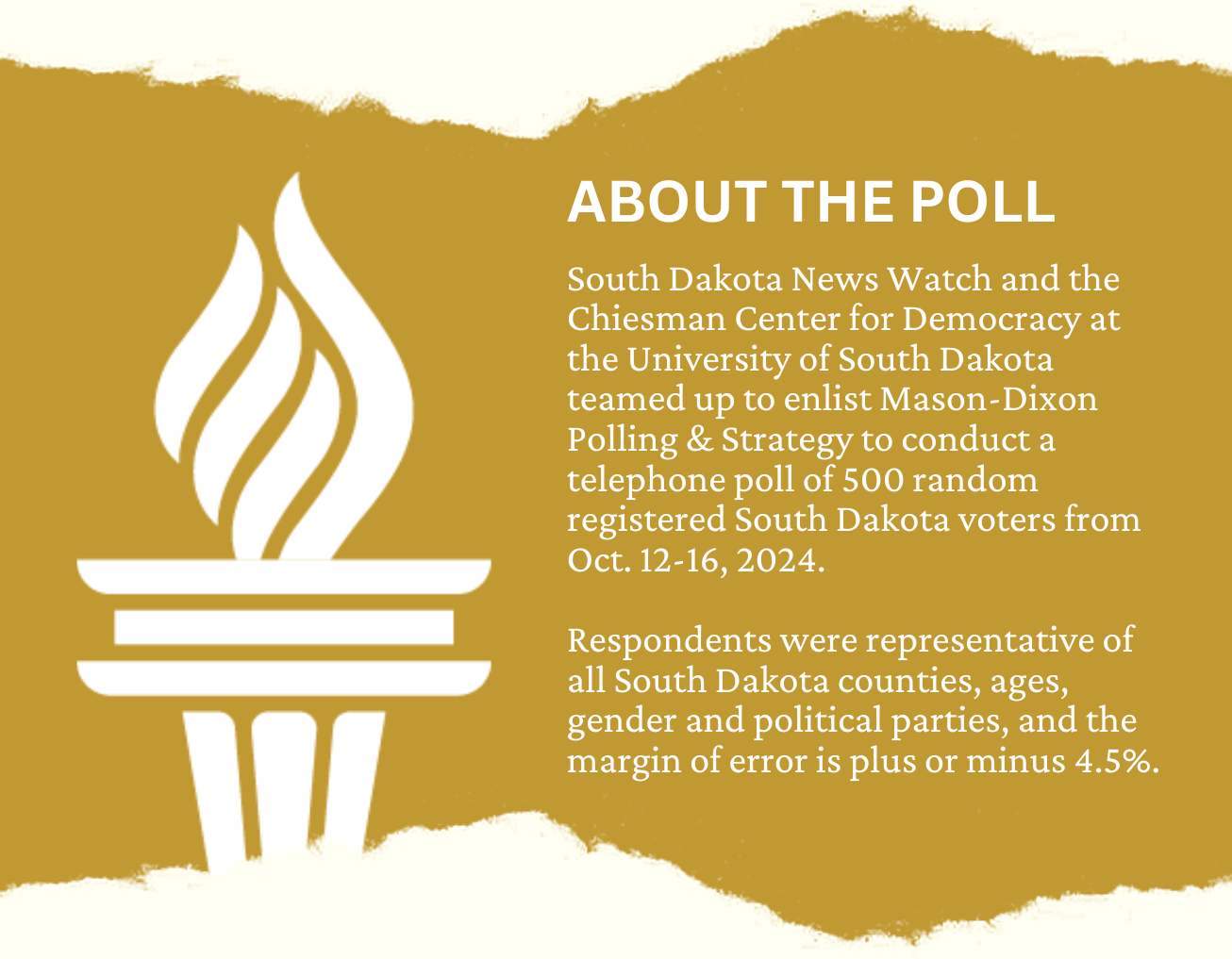
The Brennan Center of Justice, a progressive public policy institute focused on democracy and voting rights issues, included HB 1182 in its roundup of 2024 legislation that “impose criminal or civil penalties on election workers for routine election administration or inadvertent errors.”
Another bill, proposed by the South Dakota Secretary of State’s office, would have made it a Class 1 misdemeanor for someone to directly or indirectly intimidate or threaten a poll worker “with the intent to improperly influence an election.”
That bill passed the Senate but was rejected in the House, despite several county auditors stating that it’s difficult to find people to serve as poll workers in the current political environment.
"We need to remember that election officials across the country are not faceless bureaucrats," said Easterly, the CISA director. "They're our friends, they're our neighbors, they're our family members. We see them in our community. They're not doing this for pay or for glory. They're doing this because they believe in our democracy, and they deserve to be safe."
In Pennington County, Mohler has told election workers to call her immediately if someone disregards the rules or disrupts the process and to call 911 if the situation becomes threatening or dangerous.
It's all part of the current era in election administration, where routine stress levels have been ramped up and become more of an around-the-clock sensation.
"It used to be that we had a little bit of downtime between the primary and general elections where you felt like you could breathe a little bit," Mohler said. "I don't feel that way anymore.”
The Associated Press contributed to this story that was produced by South Dakota News Watch, a nonpartisan, nonprofit news organization. Read more in-depth stories at sdnewswatch.org and sign up for an email every few days to get stories as soon as they're published. Contact Stu Whitney at stu.whitney@sdnewswatch.org

